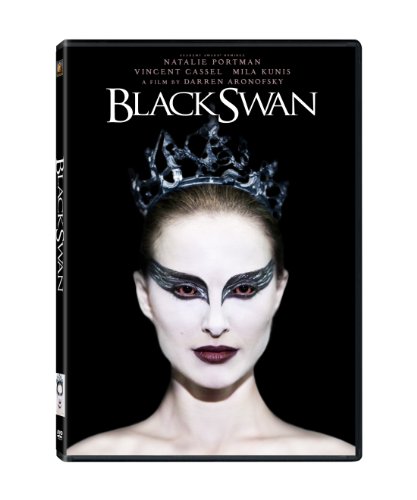All Nonfiction
- Bullying
- Books
- Academic
- Author Interviews
- Celebrity interviews
- College Articles
- College Essays
- Educator of the Year
- Heroes
- Interviews
- Memoir
- Personal Experience
- Sports
- Travel & Culture
All Opinions
- Bullying
- Current Events / Politics
- Discrimination
- Drugs / Alcohol / Smoking
- Entertainment / Celebrities
- Environment
- Love / Relationships
- Movies / Music / TV
- Pop Culture / Trends
- School / College
- Social Issues / Civics
- Spirituality / Religion
- Sports / Hobbies
All Hot Topics
- Bullying
- Community Service
- Environment
- Health
- Letters to the Editor
- Pride & Prejudice
- What Matters
- Back
Summer Guide
- Program Links
- Program Reviews
- Back
College Guide
- College Links
- College Reviews
- College Essays
- College Articles
- Back
Black Swan MAG
“Black Swan” is a visual masterpiece, a disturbing character study, and a gut-wrenching psychological horror film. In one of the best films of the year, Darren Aronofsky directs with a bold artistic vision, documenting the rapid mental breakdown of the paranoid, perfectionist ballerina Nina (Natalie Portman). In an Oscar-winning performance, and certainly the best of her career, Portman sheds her sweetheart attitude and travels to new acting depths, at the same time as her character loses her innocence and descends into madness.
In fact, “Black Swan” abounds with artistic parallels. It is a film about ballet, and moreover it is a ballet; it features over-the-top theatricality and uses the nightmarish music of Tchaikovsky's “Swan Lake,” the ballet around which the film is centered.
In “Swan Lake,” one dancer must portray both the innocent White Swan and her evil twin, the sensual Black Swan. The psychological duality of these roles parallels Nina's own duality, which she explores with devastating results. The doppelganger aspect of “Swan Lake” is also evidenced in the film as Nina is haunted by her double, the free-spirited Lily (Mila Kunis), who becomes Nina's understudy and seems to embody her darker side.
As Nina struggles with her ballet role, she must deal with other issues as well, ranging from her strained relationship with her repressive mother (Barbara Hershey) to unwanted attention from the ballet company's director (Vincent Cassel). Also suffering from an eating disorder, obsession, and paranoia, Nina bends under the immense pressure and begins to see grisly hallucinations that take a toll on her mental health.
But in a film with an unreliable protagonist, reality and hallucinations are often indistinguishable, and this is what makes the film so compelling. The viewer must judge whether Nina's perspective is accurate and if certain events even happen. Thus “Black Swan” becomes a multilayered film with many possible interpretations.
This complexity is further enhanced by Aronofsky's clever manipulation of mirrors; with a mirror in almost every scene. Mirrors are often associated with deception, desire for perfection, and duality, all concepts explored here. Moreover, small details including the color of Nina's clothing illustrate her struggle. Her wardrobe changes from light to dark, paralleling her collapse and psychological transformation from the pure White Swan to the evil Black Swan.
Symbolism and parallelism aside, “Black Swan” is an audacious declaration of Aronofsky's creativity. He constructs an unlikely blend of horror and ballet, mental illness and artistic devotion. These mismatched themes work surprisingly well together, and we soon realize that the music of “Swan Lake” totally suits the atmosphere of this horror film.
A film like “Black Swan” is rare: it is as nightmarish as it is exquisite, as disturbing as it is beautiful. It explores not only the duality within everyone but also the fine line between hallucination and reality. The film takes us to intimate places with Nina, and we cannot help but empathize with her, making the film, though over-the-top (and intentionally so), seem frighteningly real.
This movie is rated R.
Similar Articles
JOIN THE DISCUSSION
This article has 4 comments.
(I'm the writer of this review.)
To Teen Ink:
I understand that you reserve the right to edit all pieces, but what I don't understand is why you feel the need to make glaring grammatical errors and use childish diction that takes away from the effect of my review.
For instance, you changed the first sentence of the sixth paragraph so that it is no longer a complete sentence. "With a mirror in almost scene" is NOT a complete clause and thus cannot be separated from the rest of the sentence by a semicolon.
Also, what serious film reviewer uses the word "totally"? ...


3 articles 21 photos 424 comments
Favorite Quote:
"I dreamed I was a butterfly, flitting around in the sky; then I awoke. Now I wonder: Am I a man who dreamt of being a butterfly, or am I a butterfly dreaming that I am a man?"<br /> -Chuang Tzu<br /> <br /> "No man with a good car needs to be justified!"<br /> -Wise Blood